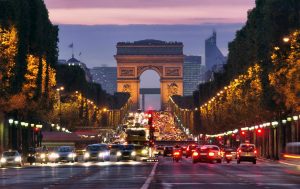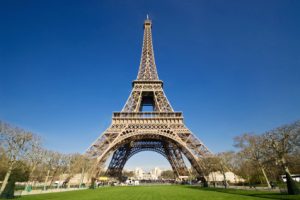Flicking through the history books of Europe, from ancient civilisations to modern-day Europe and the formation of the EU, no country is likely to be mentioned as much as Germany. It’s a country at the centre of Europe in terms of geographical location, economics, technology and industry. Within Germany you will find 32 world heritage sites, covering castles, churches, cathedrals, and many ancient relics. It’s also been the birth nation of so many famous artists, musicians, architects and writers, with much of their work still preserved and displayed in the many museums and galleries spread around the country.
It is no surprise that Germany is one of Europe’s most visited countries, especially during winter when it becomes home to so many snow and adventure sports. The summer months are spent less at the beach and more following the nation’s wild festival circuit, which is headlined by the famous Oktoberfest, the largest and most attended celebration of beer and music on the planet. There really is no such thing as a bad time to visit modern-day Germany.
Germany is also a country which offers an experience of the new, young, modern Europe, as well as home to areas of great traditions. In Berlin, Germany’s proud capital, you will find a youthful, vibrant city, which embraces change and evolution, almost in a constant state of reinvention. In contrast, areas of Bavaria, such as Munich, are at the centre of so much tradition, centred on the preservation of age-old art, music, food and ethics. One thing’s for sure is that Germany is a very sociable country and fun-loving nation. Whilst in Berlin, the home of techno music, you’re likely to experience one of the greatest club scenes on the continent, in Bavaria, you’ll find a wonderful beer tavern culture.
Teaching English in Germany
Breaking into the teaching market in Germany can be a bit of a challenge. There’s a demand for TEFL teachers throughout almost every city and town in the country. German institutes demand a high level of experience and qualifications, with a degree and TEFL certificate. Schools also demand native English speakers which means you’ll only be hired if you’re from a specific country.
Whilst there are opportunities to teach English in Germany’s state schools and universities, the best vacancies are usually found in business English and adult teaching. State schools rarely advertise for teaching positions, keeping a database of resumes and teachers in waiting. However, it doesn’t hurt to contact schools and join potential waiting lists, especially if you’re already in a certain city in Germany. Due to the high standard of language teaching in state schools, many parents look for additional private tutoring for their children. Through private tuition, you can expect to earn anything up to €30 an hour (though be warned, taxes in Germany can be sky-high, especially when working freelance!).
Despite being at the heart of Europe, many German schools prefer North American English, so opportunities for North American TEFL teachers are slightly higher in Germany than in other EU countries. Visa laws also tend to be more relaxed regarding teachers from outside of the EU, and North American’s only need to secure a job and produce a copy of their contract, to obtain their visa and start working legally.
Must See
Neuschwanstein, nestled in the Alps, is one of the world’s most famous castles and was the inspiration for Walt Disney’s castle in Sleeping Beauty. Neuschwanstein is also the most photographed building in Germany. King Ludwig II designed this fantasy-like castle in 1869 but instead of hiring an architect, the eccentric King used his favourite theatrical set designer to draw up the original plans.
Most people have heard of Oktoberfest, it has made the Hofbräuhaus in Munich the most famous beer hall in the world. Those who come to experience this immense event will be joined by 6 million others, eating sausage and sauerkraut, drinking the best Bavarian beers in the world and listening to yodellers and alphorn players in their finest lederhosen.
The old centre of Nuremberg is well visited throughout the year, but you’ll find this city at its magical best during the Christmas market. With busy Christmas shoppers filling the streets and the imperial castle towering majestically over the city, a simply stunning atmosphere is created; a true winter wonderland. The open-air market is made up of around 180 wooden huts, all festively decorated and lit up with great care, tradition, and imagination. The highlight event is when over 1500 local children join in a lantern procession, parading up the hill to the castle tower.
If you would like to get TEFL qualified and become eligible for teaching work abroad then click here to visit the official TEFL Course page



